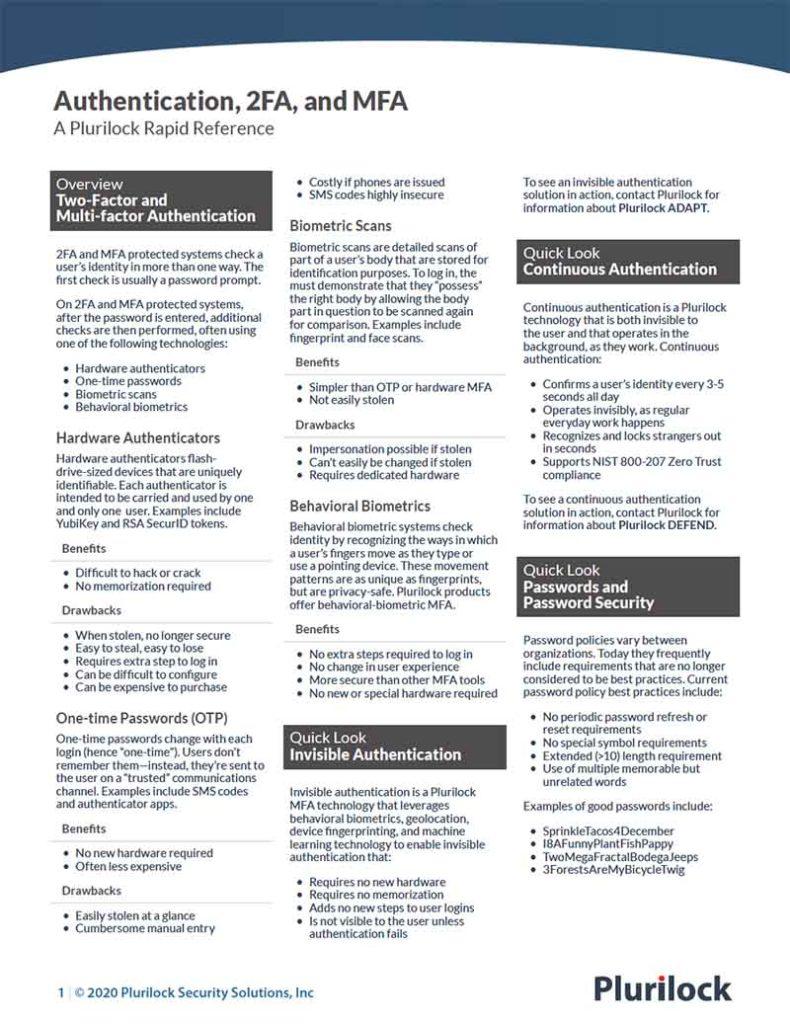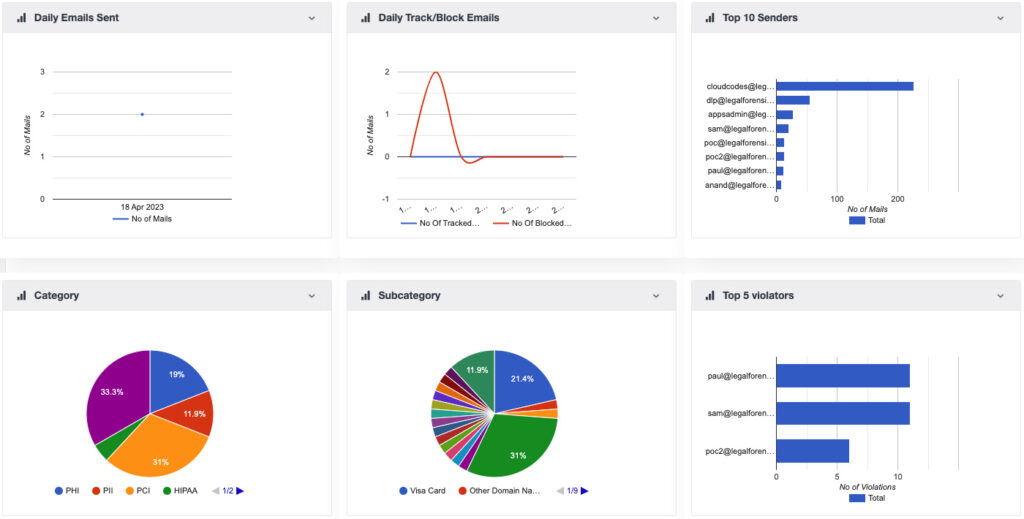Cybersecurity Reference > Glossary
Point-in-time Detection (PiTD)
Point-in-time-detection refers to the act of verifying a user at a specific moment, such as credentials at a login prompt.
After that point in time passes, it is assumed that the user is still the previously verified user. This is the fundamental weakness of traditional authentication mechanisms that allows credential compromise to go undetected for so long. Point in time detection poses one of the largest tradeoffs security teams need to deal with, identity assurance vs user experience. Shortening the lifespan of access tokens increases identity assurance, but decrease the user experience by causing them to have to authenticate more frequently.

2FA/MFA Rapid Reference
Authentication at a glance
Download the 2FA/MFA Rapid Reference now:
- 2FA and MFA basics and common solutions
- The benefits and drawbacks of each
- Glossary of authentication terms
2FA/MFA Rapid Reference
- 2FA and MFA basics and common solutions
- The benefits and drawbacks of each
- Glossary of authentication terms
Downloadable References
PDF
Sample Governance Policy for AI Use
Sample, shareable addition for employee handbook or company policy library to provide governance for employee AI use.
PDF
Establishing Guardrails for AI Whitepaper
Generative AI is exploding, but workplace governance is lagging. Use this whitepaper to help implement guardrails.
PDF
Practical Cybersecurity Cheat Sheet
Cheat sheet for basics to stay secure, their ideal deployment order, and steps to take in case of a breach.
PDF
Plurilock DEFEND™
Real-time, continuous authentication using behavioral biometrics and machine learning.















